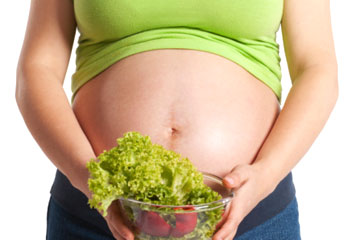Researchers from Texas A&M AgriLife’s Vegetable and Fruit improvement Center and a research group from Baylor College of Medicine reported about their work earlier this year. They developed a new variety of super carrots that contain 41% more calcium than the regular garden varieties. In a study 15 men and 15 women ate regular carrots for a week. At the end of the week urine samples were taken to examine the amount of calcium absorbed. The test persons ate the modified carrots for a week, and more urine tests were taken. The result showed a higher intake of calcium from the modified carrots. The head of the study, Dr. Jay Morris, PhD made a statement that fruit and vegetables are beneficial for many reasons, but they have never been a good food source for calcium. He states that if the new technology is applied to a number of different fruit and vegetables, it could have a significant impact on preventing osteoporosis. This research may sound like a futuristic concept, but bioengineering and food from bioengineered animals may soon be a reality for consumers in the United States and in Europe. The FDA has reported that, for the most part, milk and meat from cloned animals is safe to eat. The European Food Safety Authority has also concluded at the same time that milk and meat from healthy cloned cattle and pigs are suitable for human consumption. At this point there was not enough information for the agency to come to a conclusion on the safety of food from other animal clones, such as sheep. The European agency noted that death and disease rates are higher in cloned as compared to conventionally reproduced animals, and it would be of essence that unhealthy clones will not enter the food supply.
The European Group on Ethics in Science and New Technologies (EGE) advises against food production from cloned animals due to the current level of suffering and health problems in surrogate dams and animal clones. Cloning remains fraught with perinatal and postnatal disease of cloned animals. Abnormalities are also common in the form of malformations, increased weight, respiratory problems, enlarged fetal liver and kidney abnormalities. Ultimately the old adage is as valid as ever, even if it comes to the mundane task of shopping for dinner. It is called “buyer beware”!
More information about the safety of our food: https://www.askdrray.com/our-endangered-food/
Reference: The Medical Post, April 22, 2008, page 25
Addendum on Nov. 16, 2012: Buy 100% organic food. It is freightening to see how superficial the FDA testing methods have become with respect to cloned foods, genetically modified foods etc. Your only recourse is to buy 100% organic food!
Last edited November 3, 2014







